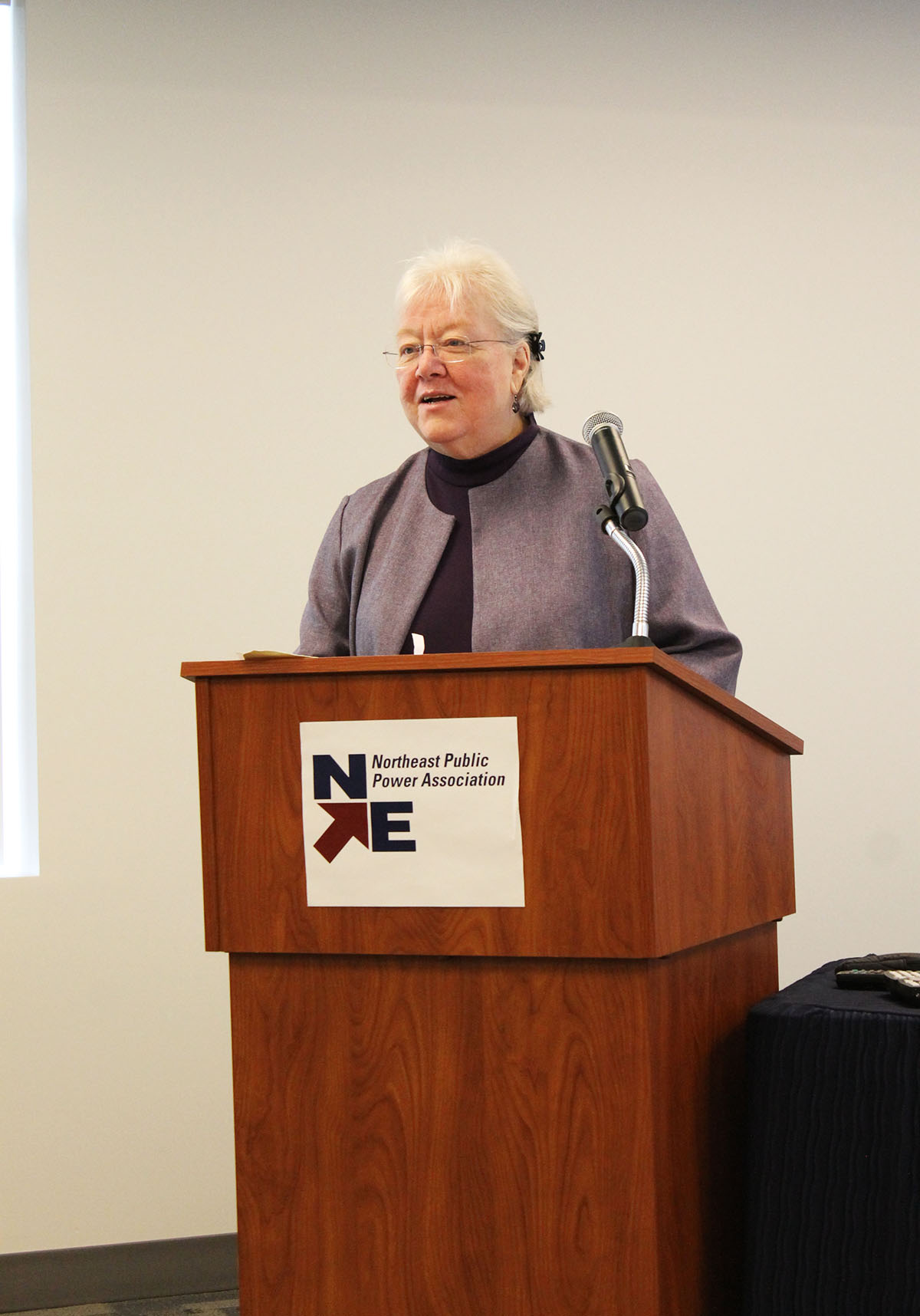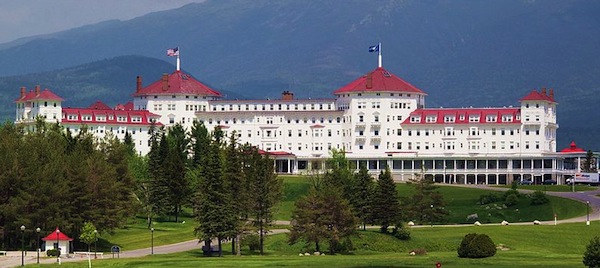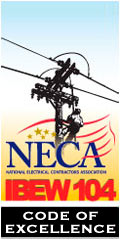NEPPA eNewsletter
March 2015
|
If you are planning on attending the APPA Rally this year, which is being held March 9-11, but haven't been on the calls or received the materials, please contact Larry Brownell at 978.540.2200 or lbrownell@neppa.org.
 ##SHARELINKS##
|
EXECUTIVE DIRECTOR'S REPORT
|
For years NEPPA, through its elected leaders and committees, has attempted to set or push for standards that the public power industry needs to function. We have done this by establishing a consensus on what we need from power markets, promoting positions on new generation, and suggesting best practices for billing and operations. These positions and standards have been helpful to members in educating and orienting new commissioners and staff.
The earliest concept of best practice agreements occurred in the medical, legal and accounting professions. Around 1887 the accounting profession established an association to serve members and immediately developed the CPA designation. The profession was much easier to establish standards of practice and education for. Initially, there were no audits and it was pretty much what we consider standard bookkeeping. But, it has grown into much more with audits, financial management and financial benchmarking.
After 100 years we have established associations to serve public power and to protect our interests. Only in the past 50 years did we begin to address performance and educational standards. We concentrated on operations, more specifically safety. This was because public power utilities are as unique as fingerprints. Recently we began to focus on the general or common knowledge that public power employees and leaders need to possess. For NEPPA it began with the early development of the Apprentice Program and then 23 years ago, with Pat Hyland’s first Public Utility Management Program (PUMP).
We are now at the point where we have assessed Public Power Management and will continue to monitor common minimum standards. For lineworkers, substation employees, meter technicians, and crew leaders we have established minimum educational requirements and have been providing those programs as classes. These programs qualify for certification as minimum educational requirements for employees engaged in these responsibilities. This year we will begin the process of transitioning these classes to qualify for CEUs and certification. What this means is that on the day a student graduates from one of these programs, they have met the minimum standard to perform these duties. But, it is up to them to continue to maintain their relevance and knowledge in these areas.
Using this same process for managers, commissioners and leaders, we have now established eight core competencies that are relevant for these folks, which transcend the various business models and sizes that public power utilities can come in:
In these eight core areas we can classify all of the knowledge segments or specialties that managers and commissioners are required to perform at the basic level, no matter what size or shape their utility. We will launch NEPPA –Q (what all of our certification certificates will be labeled) for managers in April. There are two ways to become certified if you are in management or on a lighting board. The first is to attend two PUMP programs. The second is by completing 16 CEUs with at least two in each of the eight core competencies. You can get these CEUs through NEPPA or any other provider. To ensure a class qualifies for a core competency, you can submit the materials before or after taking the course. In order for it to be vetted we need an outline of the content, name of instructor, instructor biography or qualifications, and a document issuing CEUs.
If taking education through NEPPA, education will be pre-vetted and labeled with the core competency that applies. For example, the new structure of PUMP will provide eight CEUs (one in each core competency) at the April program and another eight CEUs at the Fall program. This would allow those interested in completing their certification to do so in one year. In other words, individuals seeking certification who are in management or lighting board positions with a public power utility can be certified after attending two PUMP programs.
So, in addition to the great education, networking and location, now PUMP provides certification!
This is your chance to be the first in what is destined to become an industry standard in New England for public power.
Become certified and enjoy the process by attending PUMP at the Water’s Edge Resort in Westbrook, Conn., April 29-May 1. Registration is open so make sure to sign up now as the program is limited to 20 attendees.
 For more information or to register please go here!
##SHARELINKS##
|
NEPPA'S 50th ANNIVERSARY YEAR
|
In honor of our 50th Anniversary, we continue to feature significant figures from our past. This month we spent time with Sharon Staz, who has 29 years of experience in this industry. Sharon has been General Manager & Treasurer of the Kennebunk (Maine) Light & Power District since 1998. In addition to her duties at the District, Ms. Staz serves on the Town of Kennebunk’s Energy Efficiency and Economic Development Committees. She previously served 12 years as Manager of the Princeton (Mass.) Municipal Light Department where she received the American Public Power Association’s Seven Hats Award (1989) for outstanding service to the community. She is active in the Northeast Public Power Association (NEPPA), having served on the Board of Directors and continues to be Chair of its Legislative Committee, a post she has held since the early '90s. Her commitment to legislative issues was also recognized by the American Public Power Association when she served a term as Vice-Chair and a term as Chair of its Legislative Committee. In 1998, she was recipient of NEPPA’s Francis "Skip" Willey, Jr. Individual Achievement Award for her professional commitment to public power. Ms. Staz served as a member of the Twenty First Century Task Force for the American Public Power Association (APPA). She was elected to the APPA Board of Directors in 2004 and served a term as Chair of the Board’s Membership Committee. In 2009/2010 she was asked to serve as a member of the Executive Committee of the Board of Directors. She is the first person in Maine ever elected to serve on the APPA Board. Ms. Staz also serves as Secretary and Legislative liaison for DIRIGO, the consumer owned utility association of the state of Maine. In August 2008, she was named the Northeast Public Power Association’s (NEPPA) Person of the Year. In July 2010 Staz served as a representative of APPA on a fact finding mission to Japan on solar power sponsored by the Solar Electric Power Association. In 2013 Staz was the recipient of the American Public Power Association's James D. Donovan Individual Achievement Award. Staz is also a member of a service organization dedicated to improving the lives of children in Maine through literacy and needs support. Prior to joining public power, she held financial and business management posts at several academic institutions of higher learning. Here are a few excerpts from the exchange.
What was NEPPA’s greatest accomplishment in 50 years? That’s the most difficult of all these questions to answer, I mean, it really is. I think that the fact that our forefathers in this business had the gumption to get together and set up this organization and that the people that have been at the helm and the people that have served on the board and the staff, and even all the way down to the tiniest member, I think it’s a remarkable accomplishment that we’re still together; we are still going, and we’ve got the tremendous number of members that we have. I really think that the growth and the working together, I know we’ve had our ups and downs and people get angry, but that seems to get resolved and you don’t see people throwing in the towel and walking away. They express their concerns, they get addressed and we continue to move forward and I know that’s not an individual event but I think that’s a pretty great accomplishment.
What was NEPPA’s most valuable program? I think that several - clearly training - stand out for me. I actually had three linemen and they all were the best tree trimmers and to try and get them into training courses and try to get them to understand better what they were doing in terms of linework and continuing on when I came to Kennebunk with a more mature crew and a much more experienced crew, we find that NEPA training has a lot to offer us. Along with that, one of the programs I was involved in and thought highly of was the Management Audit that we used to do. They were in-house audits, they were managers that we trained to do these audits that were member systems of NEPPA, and we went into systems and under either the direction of the GM or the board, figured out what was going on, where improvements could be, if there were some things that were lacking and where the system needed to head in the future. I think that was a terrific program. It’s since been dropped and I talked to Larry about whether we could revitalize it; but I think that both of those training as a whole and the management audit stand, out to me.
What did you see as NEPPAS primary role? I think it’s changing, I think it was there for a while seen as predominantly training and that is not a role that we want to lose; we need to continue to build on it and improve on it. But we also have taken on looking out for member systems with a broader range of issues - leg issues, power supply issues, ISO New England issues and I think that’s a critical role that NEPPA can play again when you look at the different in size of members, some as small as 250 meters and others well over the size of 26,000 meters. How do you meet all their needs and by looking towards the current issues that are before us, getting those before all the members, being able to represent the smallest fella’s along with the big guys? I think is a critical role for NEPPA and I see that growing and continuing into the future.
Did NEPPA meet those expectations (Q3)? Absolutely, I think so, I think the NEPPA management or directorship through the board and through the Executive Director, have listened to the members and made changes when they needed to be changed. So I think they’ve really done a great job.
What do you see as NEPPA’s primary role in the future?I think it’s certainly no less than a two-legged ladder and maybe a 3 legged stool (laughed). I think we’ve certainly got to continue the training we’re doing, I think, a great job on the NEPPA apprentice program. I mean, just look at the number of the people that are enrolled in that program. The fact that Steve’s got to have two classes for the second year apprentices, that’s a sign to me that says NEPPA has really nailed it with that apprentice program. I think we need to do more - once you become a first class Lineworker, where do you go from there and what‘s your training from there? How can we continue to be excited about the field and continue to improve their knowledge? That certainly continues to be a primary role. I also think we need to continue to strengthen the market issues that we’re looking at. The ISO New England issues that we’re looking at, the infrastructure in New England, the gas pipeline. Members want to have these addressed and so I think NEPPA needs to continue to look at those regional items. They’re going to change, obviously, right now it’s market capacity, it’s gas pipeline, it’s the function of the ISO, hopefully if we can fight the battle and make some changes there than two years from now it’ll be this battle or that battle but it’s going to continue to be regional issues that those that are small system, there’s no way they can monitor them and comment on them, by themselves. They’re so busy with their own systems and the big systems, and yes, there are multiple layers of staff that can help address them, but they help NEPPA and all of us go forward with those issues. I think we need to continue that, I think that’s a very strong third leg. And I think although, not be a primary role, I wouldn’t want NEPPA to lose sight of what I call "training for non-operations people". We have PUMP and a customer service program and a conference once a year, but could we do more for the non-op staff. Could we do more for admin assistants, customer service reps, even GM’s that may not be able to go to the PUMP program but are there half day seminars or one day things that we could do to bring some of these people in or reach out to them by video conference and that kind of thing to sharpen the skills that they may need? That’s a leg I’d like to see built on and come up. If you have those three goals, you’re golden!
How did NEPPA help your utility? I think, again, primarily for both systems I’ve been at it has been with the training. It’s been how do we get the operations staff to do their best. I think that’s been the primary focus for both, but I think it’s also helped us by being connected to other systems. We learned what other systems were doing and we can piggy back on that or we can copycat that or we can tweak it and that’s been very helpful. How did NEPPA help you personally? I think through professional growth, I think the networking, meeting other managers, meeting other Lineworkers, getting to other systems and seeing how they’re managed and run and what they do. That’s been a very great experience. I would say the personal growth and the networking and the camaraderie that you get through an organization such as NEPPA.
Are there programs you wished NEPPA would have offered? Yeah, I think it’s that weak third leg that I talked about. I think it’s something for the non-operational staff. I’d like to see NEPPA revitalize the management audit program, each of the systems that went through that had nothing but praise for it and I think that’s still a need out there and I don’t know if we can redevelop it, tweak it and change it, but I’d like us to think about that
What do you think of the move to Littleton? I think it’s terrific! I think it’s a central location and for me. I can remember my dad saying to me when I graduated from College and I was getting my first apartment, "Sharon, you know if you can possibly get yourself in a position to buy a house and pay your own mortgage instead of paying rent and paying someone else’s mortgage" and I feel that way about NEPPA. I don’t know if it’s called a mortgage, as I understand it we’re going to own that building eventually, hopefully, and I think that’s terrific, I think those resources are being strengthened and hopefully we will own it and we can continue to build on it. It’s nice to have a home.
If you were on the NEPPA Board today and could make one change, what would that be? I think I’d take a hard look at where my income sources are. I don’t know the answer to this but I’m assuming the majority of our income is coming from membership dues and the training program. Is there a way we could broaden our income ability that might reduce the burden of dues or the cost of the training? I think I would take a hard look at my numbers and see whether or not there we other programs we could add that would add income and not just be programs that are gonna be added and be at a loss. I mean it’s been tough in this current economy but we’ve held the membership together, which I think is a real plus for NEPPA. Things aren’t getting better, energy supply costs are gonna go up, members are still gonna be taking a hard look at their budget, and we need to justify the cost of NEPPA and we need to make sure that we can say to members "we are looking at diversity and adding ways to increase income and reduce costs if we can".
If I used the word "visionary", what NEPPA employee or member comes to mind? You know, there are a lot of them. I said it at a meeting a couple months ago that a real turning point for NEPPA was when we hired Andrew Natsios. He was only there for just a year or so, but I think he was such a dramatic change from the Executive type of directors we’ve had in the past. He set a bar and some expectations for executive directors and board leadership and even member leadership for the future. I think that hiring was a turning point and he was certainly a visionary. A lot of our members, they don’t necessarily get credit for it, but Steve Kaminksi, who is knee deep in his own system issues and making sure that he does what he needs to do for NHEC but is willing to head up the power supply committee, is willing to get knee deep in ISO issues with Nancy Chavitz. He deserves a real pat on the back as he’s looking to the future as well as taking care of his own system and looking to the future for all of us. You know I think there’s a lot of members out there that do that and serve the organization well.
Do you feel NEPPA should play a major or minor role in Washington? You know, major/minor is hard to define, but I absolutely, positively think NEPPA needs to be in DC, particularly now. The involvements gonna vary, obviously, with the issues that we face. There are the things coming out of FERC in particular, out the legislature in the past, and the legislature in the future, that are all critical to us. NEPPA is in a pivotal position to represent us in DC in speaking for the 72 members. To go down with a small group with a distinct message (and the members of those groups change depending on what the message is) we need to deliver. I think that’s fantastic that we’ve got this broad base of systems that when you need someone that’s got more knowledge on issue "X" you can get that person down there to speak to it on behalf of all of us. And yet the players may change, cause the issues might change, and the level of expertise is gonna change with the person. So absolutely, yes, we need to be in DC. We need to do more at the state level; we need to encourage our members to do more at the state level. Obviously NEPPA is not in position to take the forefront on the state issue, but NEPPA might be in a position to help state members who would come to them and say, "this is an issue in our state and we really need some guidance on how do we lobby about this and what do we do, and how do we go about who to speak to," legislative training 101 maybe? We could certainly do that, but definitely we need a presence in DC, and that’s gonna vary. Some years it’s going to be major because of the issues that are happening on both the congressional and FERC level. Issues may be numerous and so we’re gonna have to put on a full court press, there may be a year when you know not so much. Our presence should always be there.
How do you think the challenges today compare to the challenges that your generation faced? Specifically, how the two periods of business model changes compare. When I first got into this business, 29 years ago, I felt that you could pay more attention to your own system, you could pay more attention to the poles and wires and serving the immediate needs of your own customer. I quickly learned that your system is not an island and that if you could not work you could get help and you could reach out to your brother and sister systems for assistance and I think that’s been a mainstay. A major change now has been that we’ve become as an industry, more political and I don’t mean that necessarily critical in terms of Congress and lobbying like we were, talking before just more a political target. Industries in New England point to electric rates and say we’ve got to get out of here and we’ve got to move south because electric rates are too high. There are more issues out there than us and that’s why I say it’s political not in the sense of whether we’re lobbying in congress or not - I think the outside influences now are coming more to the forefront. But the job has become much broader, much more involved with outside influences and outside issues that really affect us. We’re not going outside to look for something but it is because our industry has changed so much.
What has been the biggest change in the industry over the past 50 years? I think that’s part of what I just said - I think it’s this whole deregulation. Going from all requirements of conventional power supply, to having to pay pancaked layers for transmission and costs and that, when that flipped, it changed us completely in my mind, and made us have to be aware of so many other things that we didn’t have to be before. Part of it was good. Some of the systems here in Maine, their rates dropped by 50%, in some other parts of NE they dropped even greater, obviously that was 20 years ago/15 years ago/10 years ago so we’re seeing the hikes come back now but, those are coming because of other issues and problems. So I think that’s been that whole change from being able to feel as though you take care of your community, you take care of your customers, you’re doing fine, to now, yeah you still have to take care of your community and your customers but you do that by having to take care of all these other broader wide spread issues that in the past they may have affected you but maybe you didn’t know about it cause you weren’t part and party to that wholesale business so you didn’t know how the markets worked and buying electricity was not playing in the stock market and buying it as a commodity and hedging all of that, it was signing up for long term power supply contracts with a fixed price, with a fixed company, for 20 years and you can’t do that anymore. That’s a huge change. What about the biggest event? I have to tell you I think that the biggest event is the one we’re in - the 50th anniversary. I can’t wait to see what you folks have planned and coming up. I think that’s huge! To think that two or three fellas somehow sat around with a coffee cup in hand and said "you know we outta start working together, and we outta get more people to work with us" and the fact that it’s stuck and grown and gotten the respect it’s gotten. And I’m not talking just about respect from the legislative angle, I mean I think the fact that NEPPA was called upon by APPA to show them how our mutual aid program worked and became sort of the poster child for them to develop a nationwide mutual aid program, how great is that!? I just think our 50th anniversary is a pretty darn big event.
What do you think is the biggest influence of the future in the industry right now? I don’t know if you consider this an influence but I think the biggest issue is this whole thing of power supply. The availability, the reliability and THE COST! Where are we headed, what are we gonna do about it, how are we gonna wake up people in other parts of the country? You know I remember a long time ago sitting in a meeting with commissioner Wellinghoff who was chair of the federal energy regulatory commission and we were talking about energy efficiency and we were talking about the great programs going on in New England, in Vermont, NH, MA, CT and Maine was just getting started and he was saying "well, you know when electricity gets 22 cents a kilowatt hour that’s when people will conserve." And I thought, "well, when it reaches that height we won’t have to conserve because they’ll all have left." I think that’s an influence that is there that we need to somehow continue to work on and that’s the availability, reliability, and the cost. How are we going to serve our customers with the energy that they’re requiring at a cost that’s going to be able to maintain their lifestyles here in NE, Improve their lifestyles here in New England, continue to have industry return manufacturing where it’s appropriate and have a thriving economy throughout New England?
How have the commissioners changed over the last 50 years? Well, I haven’t been around in this business for 50 years yet, thankfully! Kind of looking forward to keeping my finger in for the future but I certainly, in the time frame I’ve been around, I would say that again, I’m not in a major system and I know that running for commission in some of the big ones, even in the good old days were political. You’d put up signs and you ran a campaign and you got elected. I’ve worked at small systems and there’s always been elections but usually not contested, usually they were men that were kind of laid back, thought they were giving something back to their community by being elected to serve at no compensation on a board of a light department that they thought they could understand and handle and felt like buying a bucket truck was probably the main issue they had to deal with and believe it or not, most men feel most comfortable buying bucket trucks and kicking the tires. The change now is that a lot of the contests where commissioners have become again political, people run based on agendas, "I’m gonna lower rates", "I’m gonna add more sustainability", " I want more renewables", "I want more generation...I want less generation" I want this, I want that, so you’ve got commissioners coming in with agendas. You’ve got commissioners coming in that are much more high tech as opposed to the former kind of laid back, look to the GM for direction, I’m here to serve, I come to my meeting, I take it all in I understand but then I go out and do my business elsewhere. You’ve got commissioners coming in now that are very high-tech, they’re on the internet, they’re looking at the broader picture, their looking at what’s happening in California and asking where we are and aren’t doing it here in New England or at your specific system so I think they’ve become a lot more proactive and a lot more high-tech, and they want their systems to reach out to that same thing. Changes with the bucket trucks? I’ve seen pictures and luckily I never worked at a system that had one but I’ve seen pictures of pick-up trucks with ladders in the back of them and the fellas hanging off the ladders to work on their cross-arm and hang a transformer or put an insulator up, so the fact that we now have bucket trucks that have insolated booms and isolated buckets for the fella’s to work in that are equipped with so many more safety requirements for them that protect them and help them serve better. I don’t even know what the highest extension is on a bucket truck; I know we just got a 55 footer a few years ago. And I know there are 60 footers out there, and I don’t know what the greatest height is for a bucket truck for our industry but I think that, and the fact that the protective devises that are in those trucks and the stability of the trucks, have certainly come a long way from the pick-up truck with the ladder in the back of it, and that’s to our credit. The cost has certainly come a long way with it but that’s understandable.
 ##SHARELINKS##
|
AROUND NEW ENGLAND
|
New Hampshire Electric Cooperative (NHEC) Board Chair Earl Hansen is pleased to announce the hiring of Steven Camerino as NHEC’s new President/CEO. Camerino, a shareholder and director in the New Hampshire-based law firm of McLane, Graf, Raulerson & Middleton, will succeed Fred Anderson as President/CEO. Camerino will officially assume his duties on March 31, 2015.
Camerino has been with McLane for over 30 years, and for the last 25 has focused his practice on a broad range of energy and utility industry issues for major regional utilities and other clients. According to Hansen, he brings a thorough knowledge of the industry to the job, as well as a clear vision for the future of NHEC.
"The Board joins me in welcoming Steve to the Cooperative," Hansen said. "We have been continually impressed throughout the search process by the breadth of his knowledge and his ability to chart a path forward for NHEC as it enters a new era with significant new challenges. He is a worthy successor to Fred Anderson, who is retiring after a long and distinguished career."
Hired in 1981, Anderson was named President/CEO in 1992 while NHEC was emerging from bankruptcy. Taking over an organization saddled with negative equity and immense debt as a result of NHEC’s ownership stake in the Seabrook Station Nuclear Power Plant, Anderson has guided NHEC back to profitability while leading the company through major initiatives like electric deregulation and the installation of a Smart Grid communications and metering infrastructure.
Camerino will inherit challenges of his own, including a regional electric industry that is changing rapidly as a result of the growth of distributed generation, renewable energy mandates, rising electric rates and a region that is increasingly reliant on natural gas to fuel electricity generation.
"This is a challenging and exciting time for electric utilities generally and those in New England in particular," said Camerino. "The issues facing NHEC today create an opportunity for us to ensure that we understand and meet the needs of the utility’s members in a reliable and affordable manner. I’m looking forward to working with NHEC’s excellent team and its members to do just that."
Camerino brings a wealth of experience to the position of NHEC President/CEO. Over his law career he has worked with numerous national and regional energy and utility companies and other clients on a broad range of complex issues. He has extensive experience in utility ratemaking, power purchase agreements, electric industry restructuring, virtual net metering, competitive supply issues, financings, and numerous operational and customer-facing issues.
"I have been extremely fortunate to work with the talented attorneys and staff of the McLane firm for the last 31 years. Their commitment to client service and community are second to none. NHEC’s similar commitment to its members and the communities it serves were a key part of my desire to join the Cooperative."
Founded in 1939 and headquartered in Plymouth, N.H., NHEC is a member-owned electric distribution cooperative serving 83,000 homes and businesses in 115 New Hampshire communities.
##SHARELINKS##
|
ASSOCIATION HAPPENINGS
|
NEPPA welcomes Ameresco as a corporate member as of Wednesday, February 11, 2015! Ameresco helps organizations meet energy saving and energy management challenges with an integrated comprehensive approach to energy efficiency and renewable energy. The company is located at 111 Speen Street, Framingham, MA 01701. The primary contact person is Michael Bakas, who is the senior vice president – LFG development. He can be reached at mbakas@ameresco.com or 508.661.2200 (phone). ##SHARELINKS##
|
CALENDAR
|
Omni Hotels & Resorts believes in providing the very best personalized experiences for our guests. By catering to every need and providing an authentic feel for the local flavor, we act as a gateway to a richer, more fulfilling stay in each of our destinations across North America.
We believe truly exceptional service is built from the ground up. We’ve cultivated a corporate culture that recognizes the extra care and contributions each of our team members brings to your travel experience. We believe the results, and the many service awards we’ve received, speak for themselves.
From exceptional golf and spa retreats to dynamic business settings, each Omni property blends seamlessly into the local culture. We feature four-diamond services, signature restaurants, WiFi connectivity, and a complimentary loyalty program that rewards you from your very first stay.  Room are now available to book for the conference! To make reservations, please click here. Please use the code in the GROUP CODE box: 082015NEPPA50TH. You can also call 603.278.1000 and refer to "NEPPA's 50th Annual Conference." ##SHARELINKS##
|
|
The Customer Service Committee is pleased to announce that this year's Customer Service Conference will be held at the Nantasket Beach Resort in Hull, Mass., on Thursday, May 14, 2015. Stay tuned for more information to come out this month and registration to open!  ##SHARELINKS##
|
|
This year’s Engineering & Operations Conference and Expo is scheduled to take place at the Danvers Doubletree in Danvers, Mass., on June 3 and 4. We encourage General Foremen, lineworkers, and General Managers to attend this annual event that brings together the latest in products and technology for our municipal membership. Some highlights of this year's conference include Mobile Technology, Fault Locating and LED Lighting. Please join us for this interesting cross section of learning, networking and connecting with your peers! Registration opens in March! ##SHARELINKS##
|
EDUCATION & TRAINING UPDATE
|
NEPPA is offering the NEW Public Utility Management Program April 29-May 1, at the Water’s Edge Resort in Westbrook, Conn. PUMP now provides CEUs and by attending the spring and fall sessions you will qualify to be a Certified Public Utility Manager.
All PUMP programs include at least one session from each of the eight core educational requirements for certifications. These include:
For full information please see the NEPPA-Q Program Document on the NEPPA website under Training & Education. The program is designed for lighting board members, general managers and staff moving into management functions of public utilities.
The program is focused on interaction with the expert speakers and attendance is limited to a maximum of 20 participants.
What is the best way to prepare a new lighting commissioner for their role? Attend PUMP with them! This gives you the opportunity to give your commissioner the knowledge they need about the industry and for you to discuss your individual utility’s unique circumstances. Registration is now open!
##SHARELINKS##
|
LEGISLATIVE UPDATE
|
In This Issue:
Obama Rolls Out 2016 Budget Request
On Feb. 2, the Obama Administration rolled out its $4 trillion Fiscal Year 2016 Budget Request. Although it has no chance of becoming law given the Republican Congress, it outlines White House policy priorities. One controversial aspect of the President’s budget is that it would exceed the appropriations caps resulting from the 2011 budget deal, with additional spending paid for by increasing taxes on the wealthy and on capital gains.
Department of Energy – The Department of Energy request is $29.9 billion, up from its current $27.3 billion level. Included in that amount is the first installment of a 10-year, $4 billion infrastructure fund for states that make emissions reductions exceeding the Clean Power Plan’s targets.
Environmental Protection Agency – The Environmental Protection Agency (EPA) would receive $8.66 billion, an increase of $500 million over current levels. Of that total, $239 million goes to climate initiatives, with $25 million to assist states craft compliance plans for pending power plant regulations. Programs that would see cuts include clean water and drinking water state revolving funds, which would see a reduction of $54 million.
Tax Policy – The budget would make permanent the Production Tax Credit and the Investment Tax Credit for renewable energy, among others. As expected, the Administration proposal again includes a 28% cap on the deductibility of interest on tax-exempt municipal bonds.
To read the complete legislative update including the following topics, click the links below: ##SHARELINKS##
|





